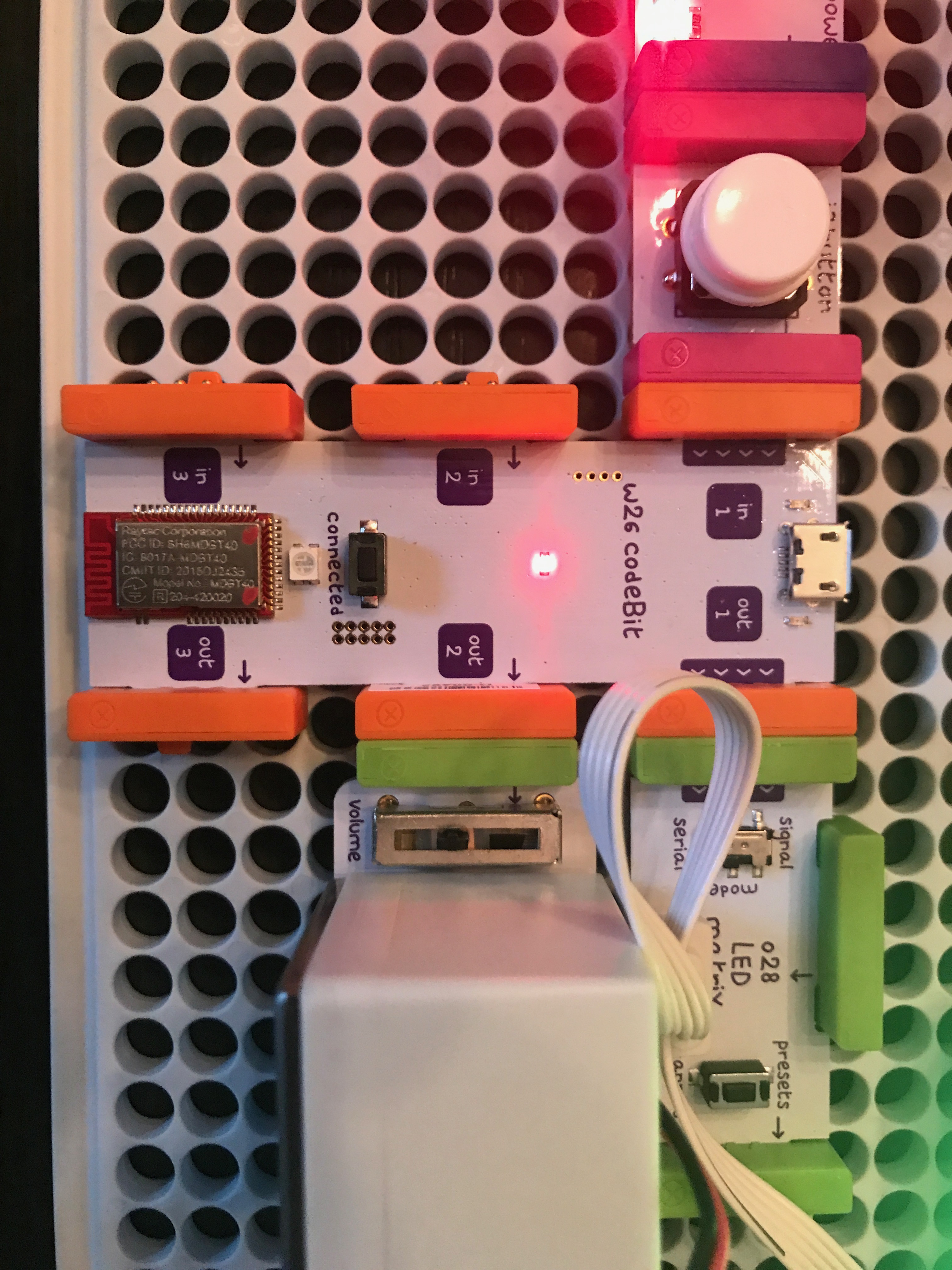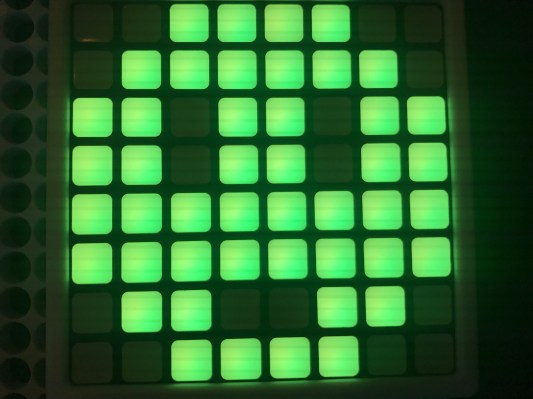I’m not a fan of educational toys. They’re usually either too educational or too toy-like and, in the end, kids get little education and little fun. The Code Kit from LittleBits has changed my mind.
The Code Kit is very specifically targeted at classroom learning for grades 3-8 and costs $299. Why? Because it’s a bit more robust than the other coding kit LittleBits offers.
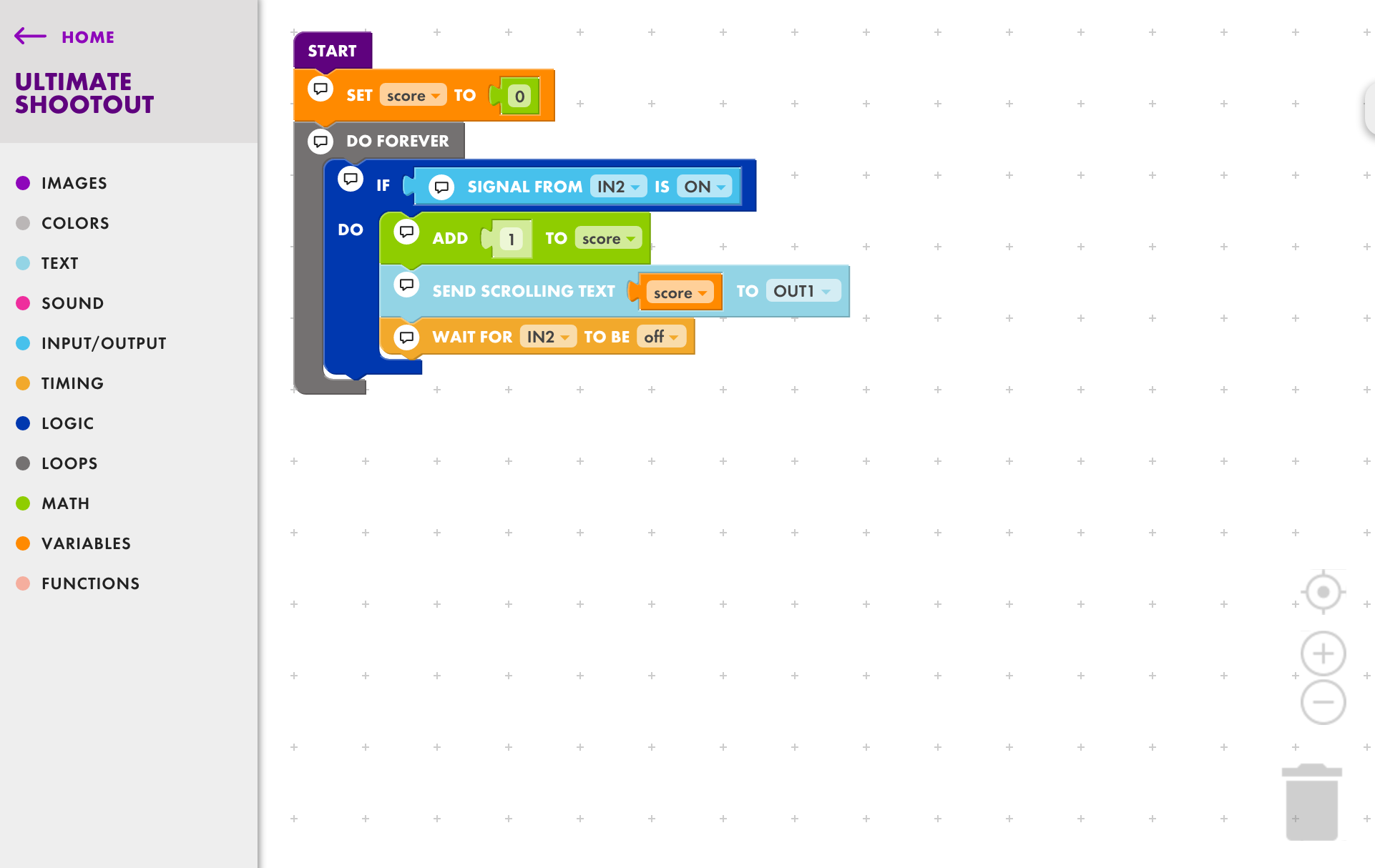
LittleBits is basically an electronics toolkit that consists of small components – batteries, speakers, switches – which connect together via powerful magnets. Things that connect will snap and stay together while things shouldn’t connect will repel each other. This means you can’t really short-circuit the limited power these kits have.
The Code Kit is an Arduino system in a box. It comes with a small rechargeable battery that can power an Arduino-based CodeBit with three inputs and three outputs. The CodeBot is wireless so you can program it via an included USB dongle.
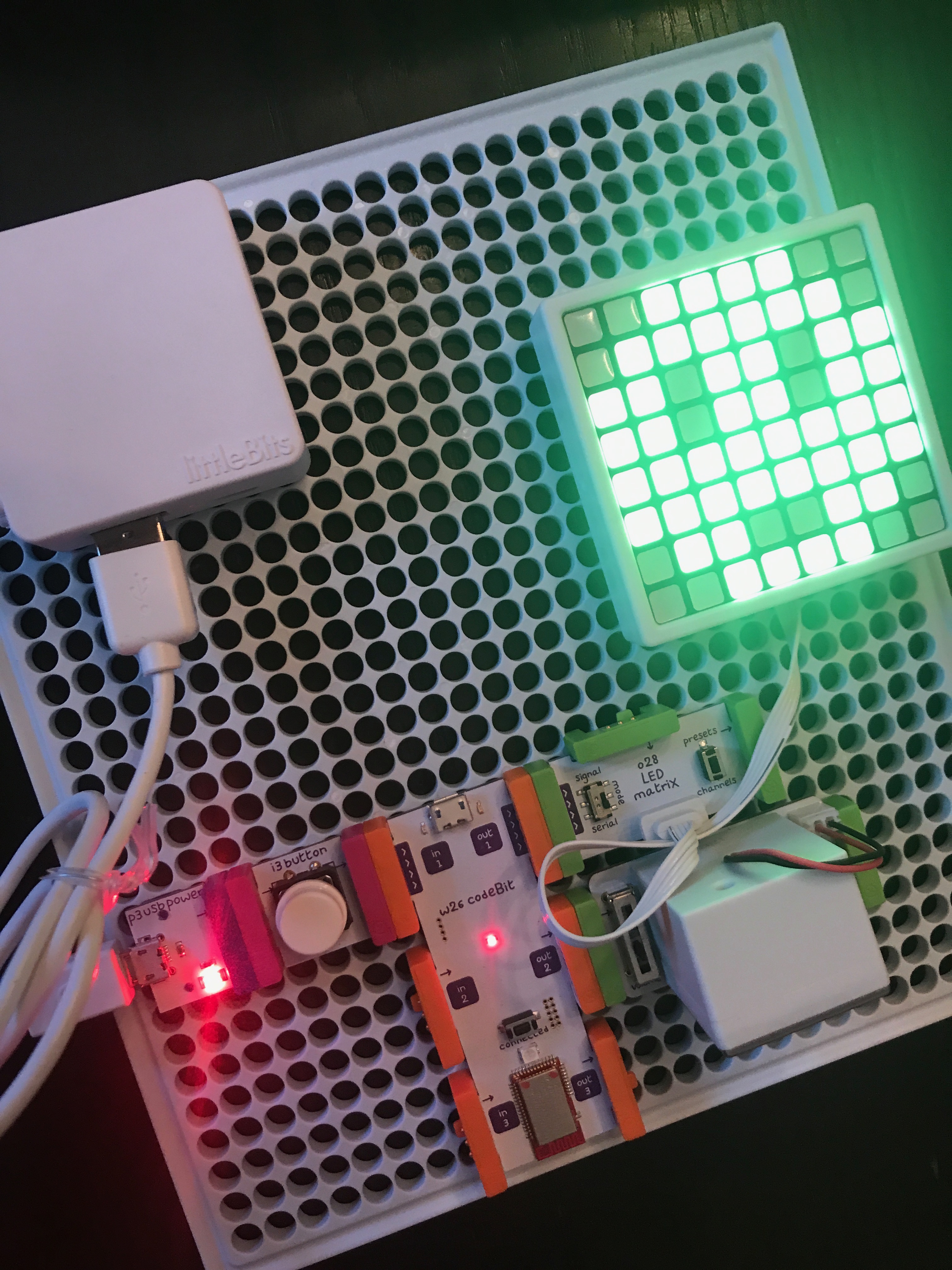
Programming the CodeBit is as easy as dragging and dropping in Scratch. I gave it to my kids and they were able to assemble the initial projects in minutes and, once I showed them the code, they were able to modify it and create their own games a half an hour later. Any teacher with a passing knowledge of simple programming could be up and running with this kit in a few minutes.
The thing I like most about LittleBits is the design. While breadboarding is fun, these little bits snap together quickly and easily and the addition of the CodeBit adds a great deal of functionality. I’ve never really liked the electronics kits that LittleBits sold – they didn’t do enough to be fun and were too simple to be roundly educational – so something like this is a great step forward. It is, in short, the first LittleBits kit I’d recommend for learning IoT and basic programming.
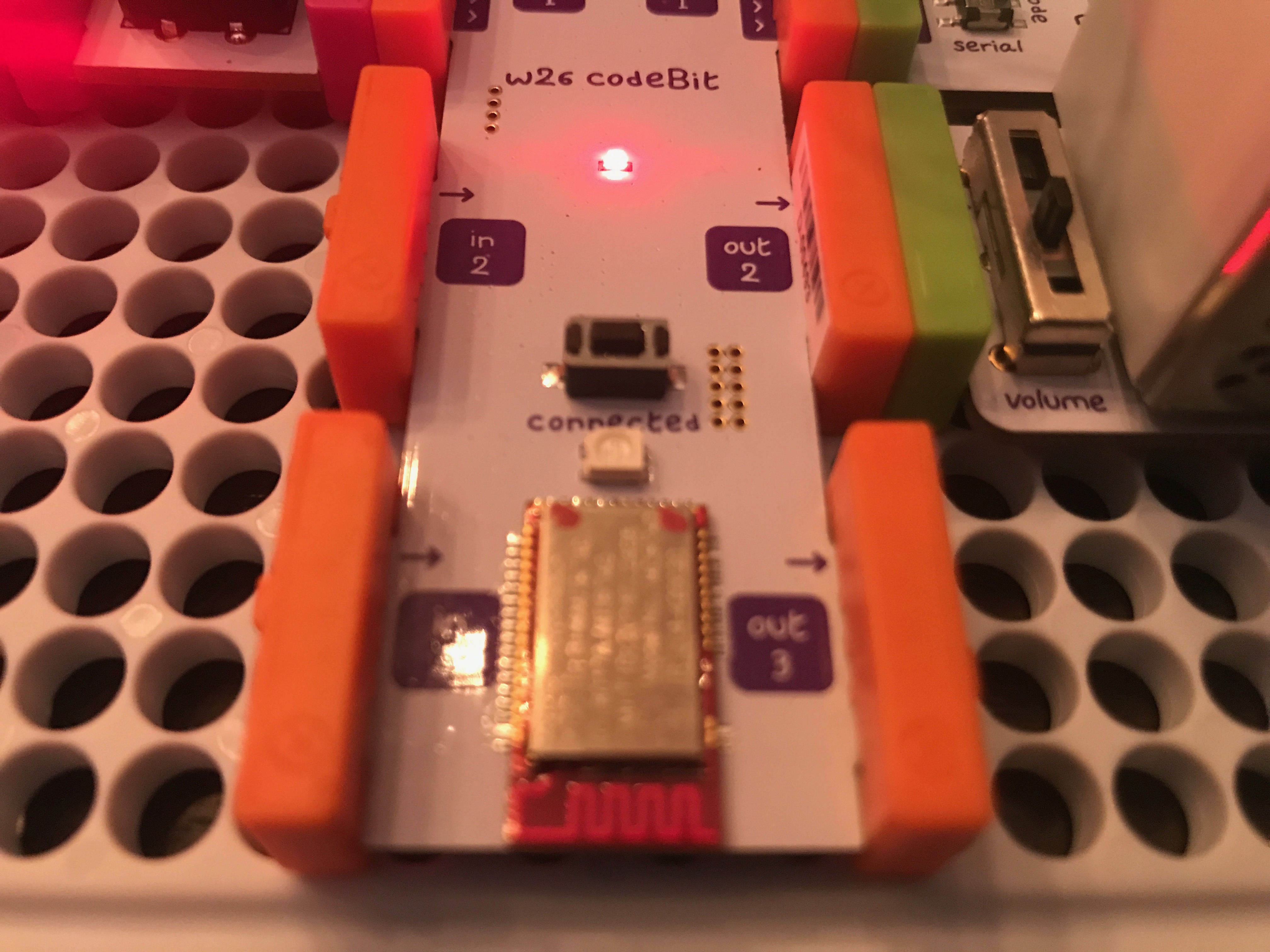
While nothing beats a soldering iron and a broken stereo for learning the intricacies of electronics, LittleBits is finally reaching some level of utility and fun that could catapult it up to the dizzy heights of Heathkit and other classic electronics kits. Just don’t lick the 9 volt.
